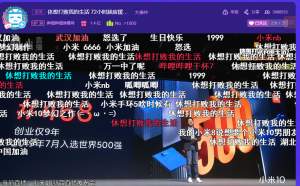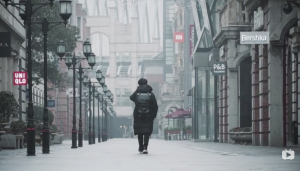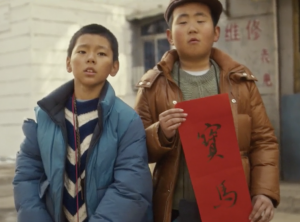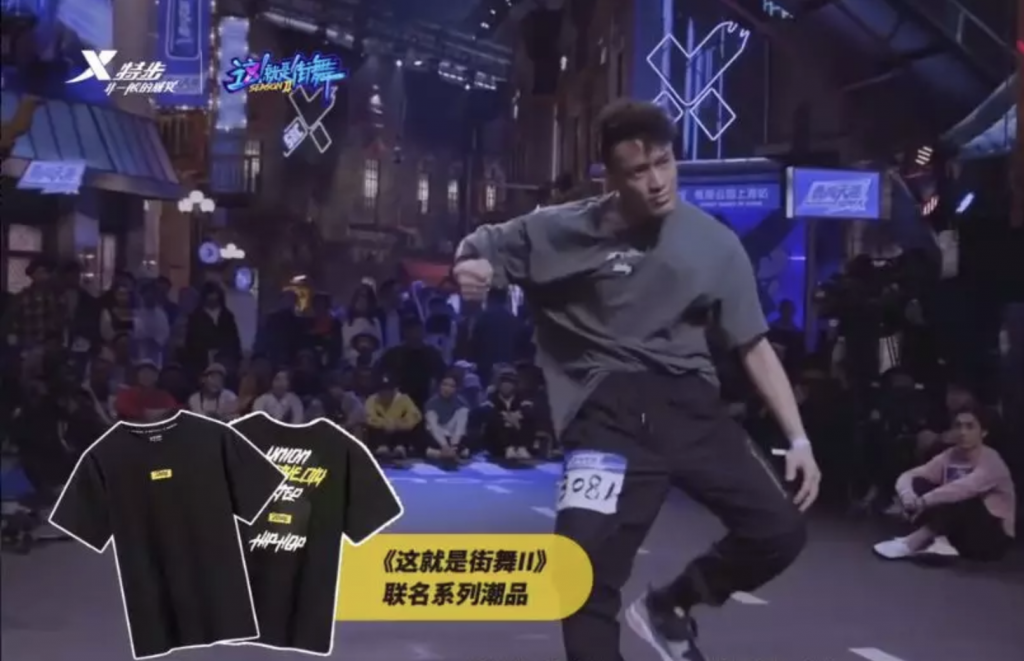
Sports brand Xtep product placement on “Street Dance of China”
Traditional forms of advertising — television commercial spots, for example — are on the decline in China as elsewhere. However, Chinese television networks and video streaming sites are endlessly creative in their quest to integrate brands into the content of their programming. While innovations have been fueled by a 2011 ban on mid-broadcast TV commercials during dramas and films on television, the efforts at finding new ways of putting brands in front of audiences have extended to non-scripted programs as well. The effects are felt beyond television, too. Streaming services are increasingly reliant on paid subscribers who don’t want to see ads, and the rise of self-produced content by these services allows them to offer brands more opportunities to be involved in the the commercial-free future of entertainment.
Last week, we looked at the brand integration strategies that are commonly seen on Chinese dramas. This week we turn our attention to surveying eight key methods of establishing a brand presence on Chinese reality shows.
1) Title sponsorship credits (冠名 / 特约赞助)
The major way for a brand to make splash on a reality show is to put the brand name up front with the program’s title.. These sponsorships are the most costly, however, with a single season of a top network program commanding hundreds of millions of RMB in fees. In addition to having the brand name featured in the title credits, this type of sponsorship typically includes numerous other integrations and may extend to offline activities as well.
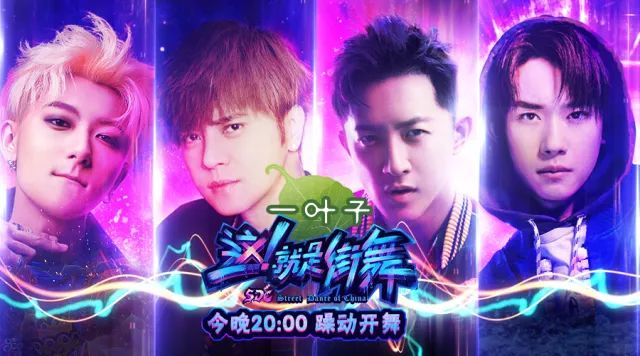
Skin care brand One Leaf paid a reported RMB 1.5 billion ($212 million) to be the exclusive title sponsor for the first season of “Street Dance of China” (这! 就是街舞) in 2018.
2) Corner logo ads (角标广告)
Small branded graphic elements that appear in a corner of the screen. These are pervasive on non-scripted programming and provide the major sponsors with brand visibility throughout each episode.
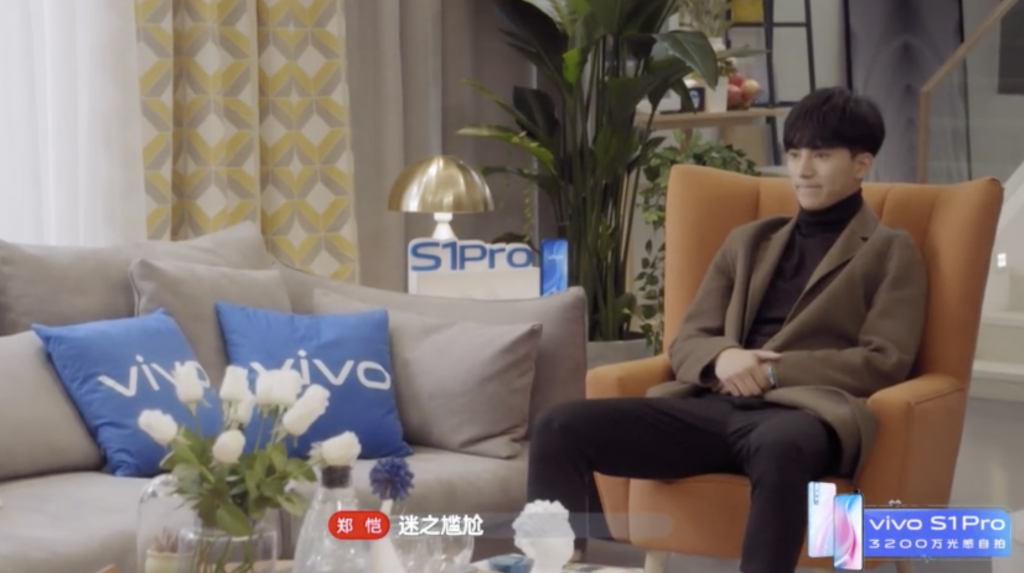
Mobile phone maker Vivo placed frequent corner logo ads on the romantic reality show “Heart Signal” (心动的信号).
3) Brand mascot (品牌人偶)
Sometimes seen on Chinese variety shows, branded characters may appear to promote products in an eye-catching manner that also appeals to viewer emotions through mascots cute and lively qualities.
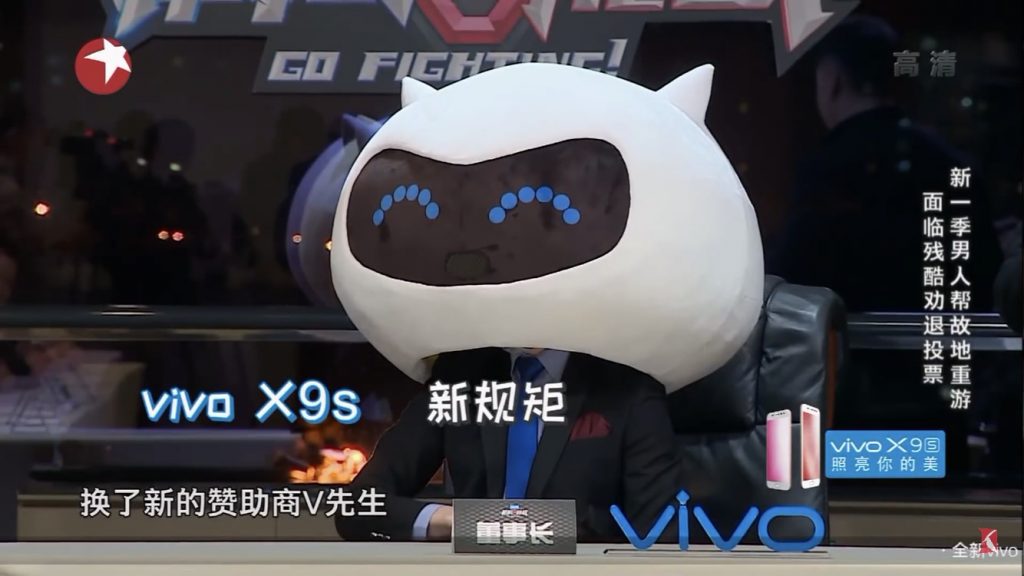
Vivo’s brand mascot “Mr. V” appeared on the popular reality show “Go Fighting” (极限挑战).
4) product placement / scenery placement (品牌植入/ 情景植入)
These types of brand integrations may accompany title sponsors, official product/designated product sponsors, and other types of support. In a regular product placement, the product is usually shown on a table alongside the show’s guests. In a scenery placement, the product’s use is featured and may be discussed by guests.
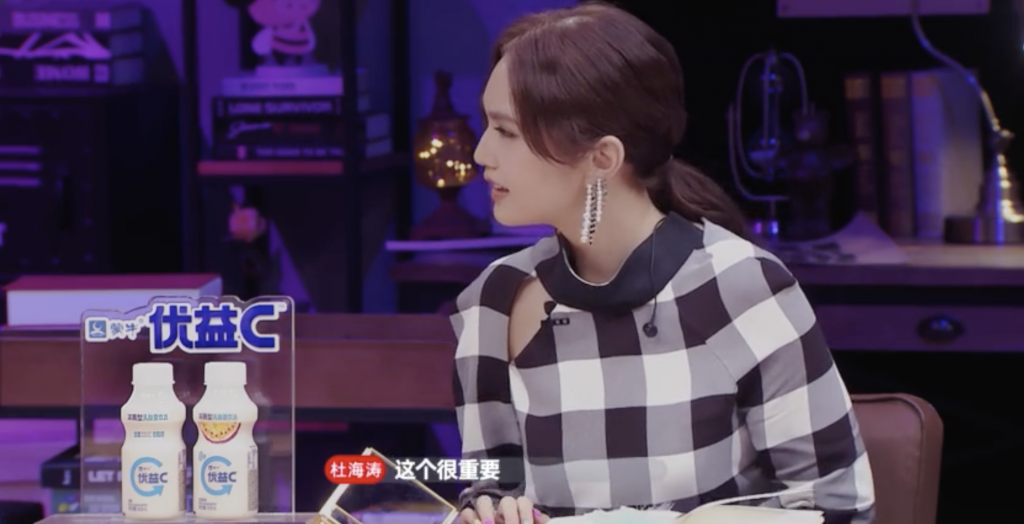
Sponsor Mengniu products placed front and center on the celebrity commentator’s desk on “Heart Signal.”
5) Background signage, light box displays, and other types of set decor (背景板展示 / 灯拍展示)
Reality show sets typically feature strong branded elements, especially in studio settings that feature host discussions. In home settings, branded props such as throw pillows are used to promote a brand sponsor.
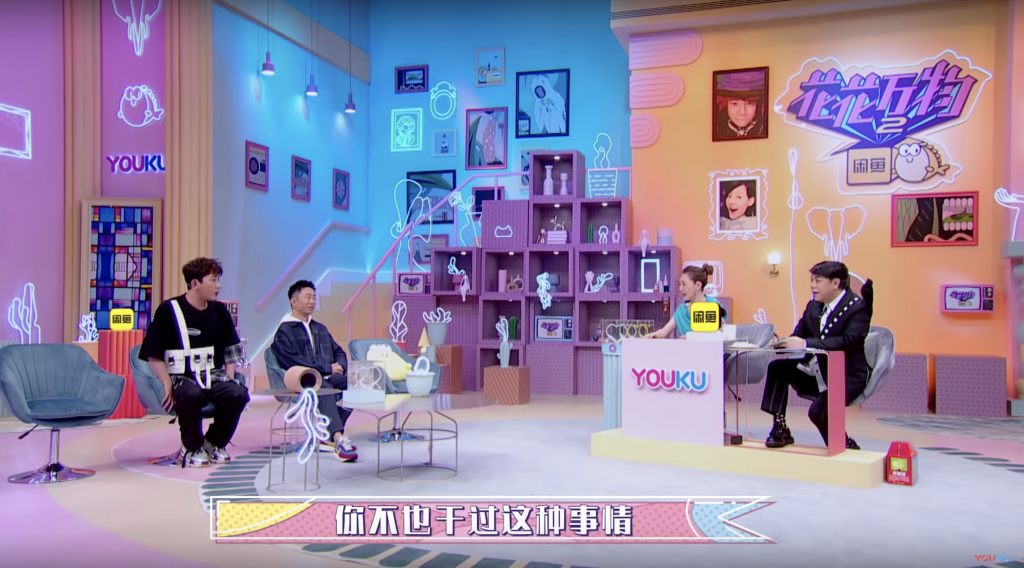
The set of “Everything Fancy” (花花万物) features various elements with sponsor Idle Fish’s name, logo and mascot.
6) Speech matched with on screen text effects (口播压屏条)
On-screen text effects are a common feature on programs such as talk shows and game shows. For a more prominent impact, they can be combined with spoken reference to a brand.

On “U Can U Bibi,” (奇葩说) when one guest says “have a house,” the host continues with “no better than having a style” which is sponsor Youfan’s slogan.
7) Interstitial ads ( (中插))
As with dramas, ads that appear in the middle of a reality show use creative strategies to link the content of the program with the product being advertised.
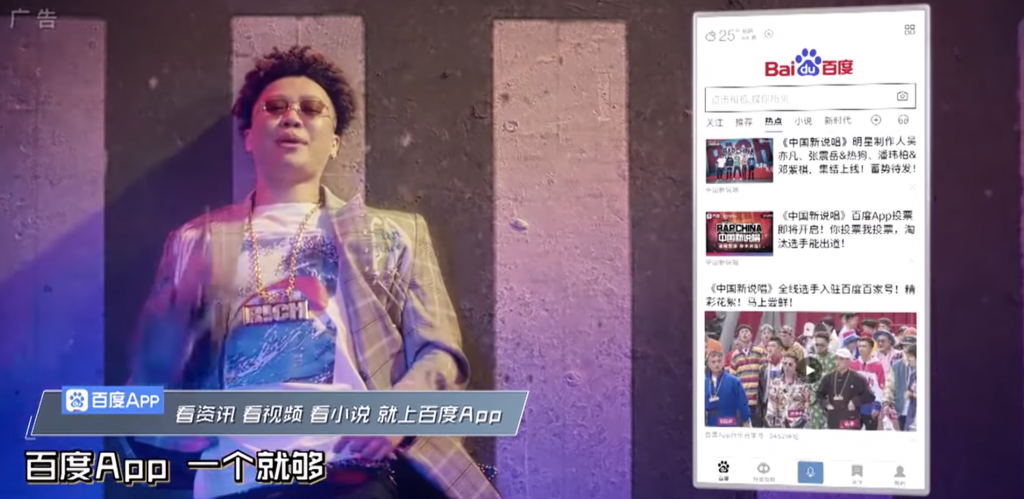
On “Rap of China,” top contestants appear in music-video style commercials as they rap about sponsor products such as Baidu App.
8) Interactive ads (互动视频广告)
Interactive video advertising is a relatively new concept that can engage viewers and provide brands with valuable feedback. So far we have seen only one of these, created by iQiyi for Clear Shampoo during the recently concluded third season of “Rap of China.”
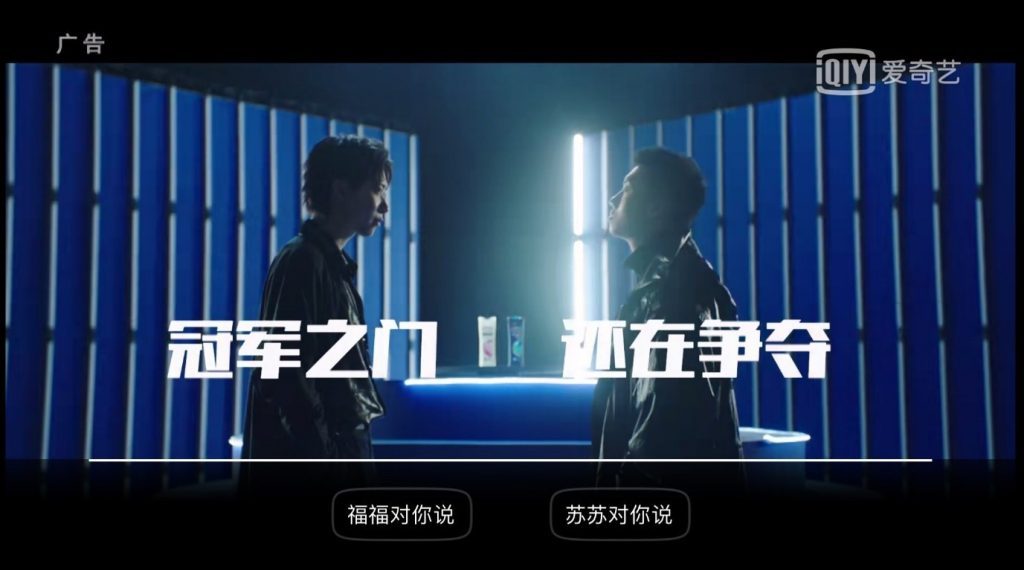
The ad featured a musical battle between two contestants, and allowed viewers to choose which one they wanted to see perform an extended rap endorsing Clear products.



